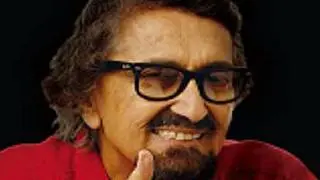Bureaucracy is defined as a system of Government in which most of the important decisions are made by State officials rather than by elected representatives. But, is this really the case? Is the service fast losing its shine?
Drawing on his experience in the Indian Administrative Service (IAS), Bhaskar Ghose, explores these and other questions being raised about this service, its relevance and effectiveness today, in his book The Service of the State .
Did being in IAS make a difference? Or was the service an anachronism, more of a brake on the process of governance than something that facilitated that process in a way that its absence would not have done?
IAS officers play a major role in managing the systems of both Central and State Governments by holding strategic posts across the countries. With this power and authority comes a touch of arrogance. No wonder, the service has had its own share of controversies, allegations of corruption, political affinity and declining standards.
But, the writer claims that despite all these “there are still sufficient numbers of dedicated public servants, spanning diverse social backgrounds, seniorities and regional profiles…” Ghose, while accepting that the service he joined in 1960, is not the service he left, still maintains that it is the best option and one which discharges its functions well. He, however, subtly admits that ‘times changed steadily'.
Relevance to India
The lobbying for foreign assignments with the World Bank, IMF or a UN organisation happened then and happens today — the reasons could have changed. For those who stayed back here to serve the state, there was a jocular, if slightly bitter saying — “when you pay peanuts you get monkeys.”
So, what has changed? Ghose makes it clear in his opening lines that the book is not on the IAS, but a ‘modest tale, and a very personal one at that, which looks at the question of the relevance of the IAS to India in the twenty-first century through the prism of personal experiences of one officer…”
By the writer's own submission, therefore, the book can provide no answers, nor has an attempt been made to offer any. “I talk about, not the ones who have amassed huge amounts of wealth, have nurtured political contacts and move easily in the corridors of power even today. These officers, because of whose steadfast, if unknown, work the state has survived to a large extent are the ones I am proud to be counted , and to say, that, like them, I served the state as well as I could.”
‘Pucca' civil servants
Ghose began his journey from the ‘The National Academy of Administration', Mussoorie, to Assistant Magistrate and Collector, Burdwan. It is only when the officers come out from the glass houses at Mussoorie to face the real world that ‘reality bites'. And the question that most officers ask is: What does the first year of training as an administrator mean? Most of them unlearn what they have learnt — so did the writer, when leading the life of a district magistrate.
Another important point in an IAS officer's career comes when he or she gets the first Central deputation. By the time the officers reach the position of a Joint Secretary at the Centre — they are what is called ‘pucca civil servants'.
Replete with various anecdotes and personal experiences through various postings, Ghose sums up his journey as a civil servant by saying: “Back to final days as Secretary, Ministry of Information and Broadcasting…As I approached the end of my service to the state, my thoughts and perceptions, and also my emotions, were a sort of counterpoint to those I had when I stepped into the National Academy in Mussoorie….”







Comments
Comments have to be in English, and in full sentences. They cannot be abusive or personal. Please abide by our community guidelines for posting your comments.
We have migrated to a new commenting platform. If you are already a registered user of TheHindu Businessline and logged in, you may continue to engage with our articles. If you do not have an account please register and login to post comments. Users can access their older comments by logging into their accounts on Vuukle.